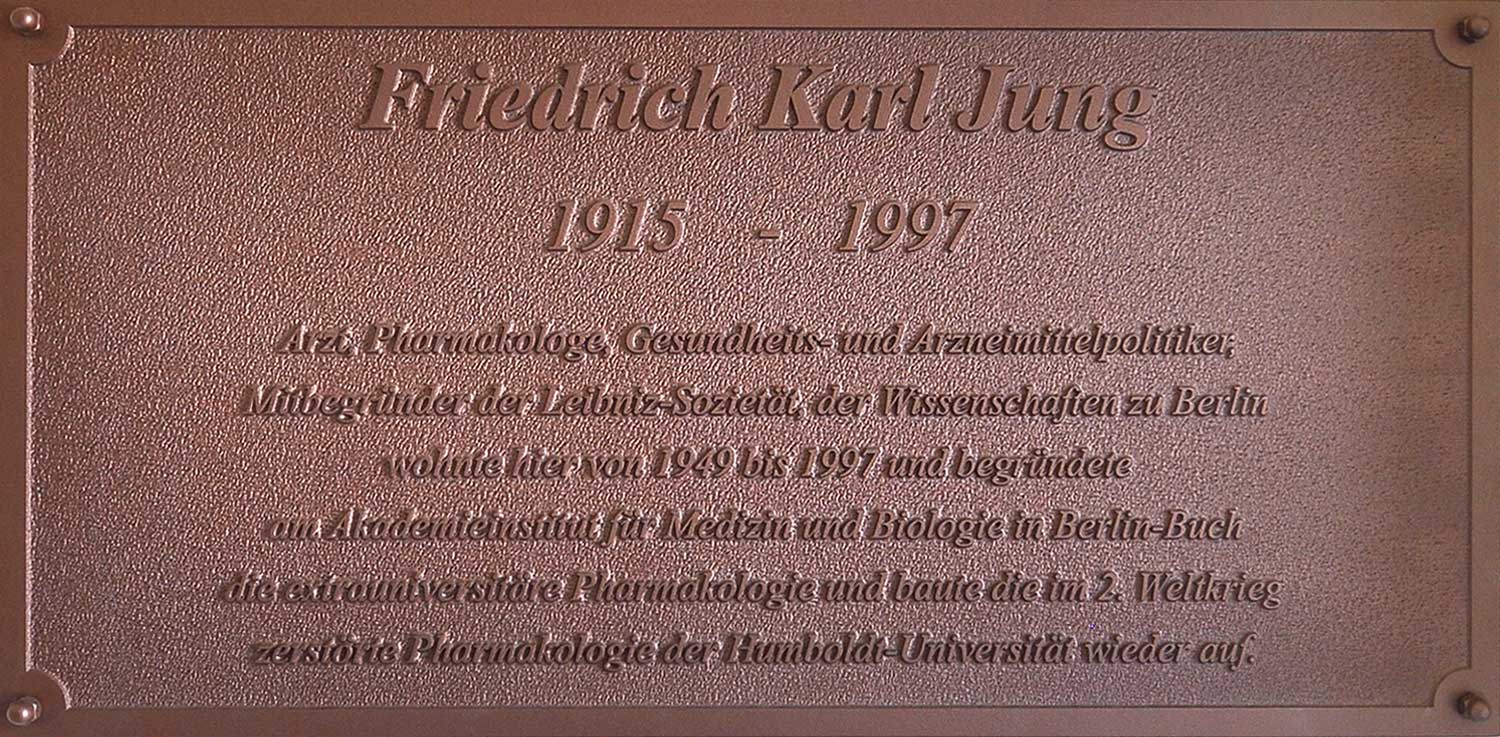1Friedrich Jung
April 21, 1915 in Friedrichshafen –
August 5, 1997 in Berlin

Friedrich Jung was a German physician and pharmacologist. Jung’s work on the ultrastructure of red blood cells and the effects of blood toxins made significant contributions to modern pharmacology and drug research.
Jung studied medicine between 1934 and 1939, first in Tübingen, later in Königsberg and Berlin. In 1940 he received his doctorate from the University of Tübingen. Subsequently, until 1941, he worked as a scientific assistant at the Pharmacological Institute of the Friedrich-Wilhelms-University in Berlin. During the Second World War, Jung worked in the military medical service. In 1941, while at the Military Medical Academy in Berlin, Jung was one of the first to carry out research using the new technology of electron microscopy. He was one of the first to succeed in imaging the cell membrane of red blood cells (erythrocytes).
In 1945 Jung took on a position as a lecturer in Tübingen, and from 1946 to 1949 served as head of the Institute for Pharmacology at the University of Würzburg. In 1949 the Berlin University, which had just been renamed Humboldt University of Berlin, appointed him to the Chair of Pharmacology and Toxicology, and he became the successor of his teacher Wolfgang Heubner as director of the institute. Here he led the reconstruction of the building housing the institute, which had been destroyed in the war. He created a department for Experimental Pharmacology and Pathology at the newly founded Institute for Medicine and Biology of the German Academy of Sciences in Berlin in Berlin-Buch, and served as its director starting in 1956. In 1961 this was split into several daughter institutes; Jung headed the Institute for Pharmacology. From 1972 to 1980 he was director of the Central Institute for Molecular Biology. Until his death in 1997, Jung lived in the ”Torhaus“ of the biomedical Campus Berlin-Buch.
In addition to his findings on the ultrastructure of erythrocytes, Friedrich Jung made important contributions to the biochemistry of the red blood pigment hemoglobin. He is also known for work on anti-inflammatory agents and the effects of blood toxins and biologically active peptides.
Beyond his scientific achievements, Jung made outstanding contributions to science and health policy. He was Chairman of the central expert committee for movement of medicines at the GDR Ministry of Health, initiating drug legislation that would be used as an international model. Last but not least, Friedrich Jung was involved in the Geneva negotiations on the ban on biological and chemical weapons and participated in international committees for peace and disarmament.
Iron, 2015